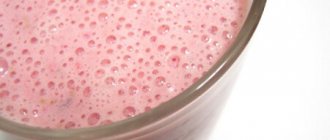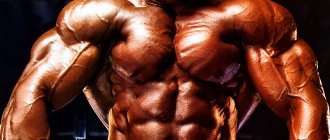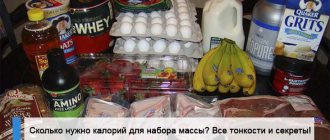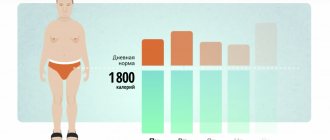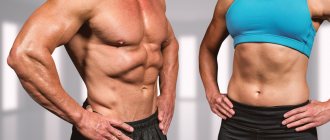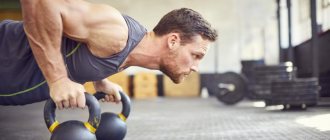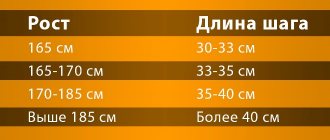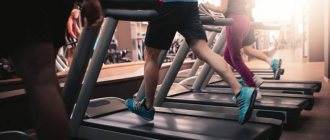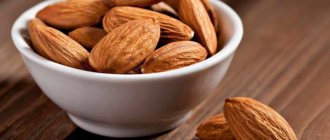2021-01-22 20:37:31 0 268
You train hard, always strive to do better, and want to achieve your goals.
You probably pay more attention to your pre-workout meal than your post-workout meal. But consuming the right nutrients after a workout is just as important as before a workout.
Here's a comprehensive guide to optimal post-workout nutrition.
Eating after a workout is essential
To understand how eating the right foods can help post-workout, it's important to understand how physical activity affects your body.
When you exercise, your muscles use glycogen for energy. This leads to depletion of muscle glycogen stores. Some proteins in the muscles are also broken down and damaged.
After exercise, the body tries to restore glycogen stores and damaged muscle proteins.
Consuming the right nutrients soon after your workout will help your body get the job done faster. After training, it is especially important to eat carbohydrates and protein.
This will help:
- reduce muscle protein breakdown;
- increase synthesis (growth) of muscle protein;
- restore glycogen reserves;
- speed up recovery.
CONCLUSIONS:
The right nutrients will help restore muscle proteins and glycogen stores and promote muscle growth.
Should you eat immediately after class?
Increased loads are not in vain. The body becomes stronger, but at the same time it uses up almost all proteins and carbohydrates. The former are the “building blocks” of muscles, and the latter are sources of energy. In addition, carbohydrates are also a trigger for the production of insulin, which has anti-catabolic and anabolic properties. Acute insulin deficiency leads to the breakdown of your own muscles. As a result, instead of gaining muscle mass, you “burn” your weight.
The training process is inevitably associated with microtraumas (muscle fiber tears). Restoring such microtraumas is the process of muscle growth. After healing, the muscles increase in volume and become stronger. Time after training, the body actively replenishes reserves using internal resources. This moment cannot be missed - you need to give the body as much protein and carbohydrates as it can “carry”.
Proteins, carbohydrates and fats
In this section, we'll look at how nutrients—protein, carbohydrates, and fat—are involved in the body's recovery process after exercise.
Proteins help repair and build muscle
As stated above, exercise causes muscle protein breakdown. The speed at which this happens depends on the type of exercise and your fitness level. But even in well-trained athletes, muscles are destroyed.
Consuming enough protein after exercise provides the body with the amino acids it needs to repair muscles. It also provides the building blocks needed to build new muscle tissue.
It is recommended to consume 0.14–0.23 grams of protein per pound of body weight (0.3–0.5 g/kg) immediately after exercise.
Research has shown that consuming 20-40 grams of protein maximizes the body's ability to recover from exercise.
Carbohydrates help recovery
Glycogen stores are used as energy during exercise, and consuming carbohydrates after exercise helps replenish them.
The rate at which glycogen reserves are used depends on the activity of the workout. For example, endurance exercise forces your body to use more glycogen than weight training.
For this reason, if you do endurance sports (running, swimming, etc.), you may need more carbohydrates than a bodybuilder.
Consuming 0.5–0.7 grams of carbohydrates per pound (1.1–1.5 g/kg) of body weight within 30 minutes of exercise results in proper restoration of glycogen stores.
In addition, the secretion of insulin, which promotes glycogen synthesis, is better stimulated when carbohydrates and protein are consumed simultaneously. Therefore, eating carbohydrates and protein together can maximize protein and glycogen synthesis.
Try eating them in a 3:1 ratio (carbs to protein). For example, 40 grams of protein and 120 grams of carbohydrates.
Consuming significant amounts of carbohydrates to replenish glycogen stores is most important for people who exercise frequently, such as twice a day. If you have 1-2 days of rest between workouts, this is not so important.
Fats aren't that bad
Many people believe that eating fat after a workout slows down digestion and interferes with nutrient absorption. Although fat may slow down the absorption of food after a workout, it will not reduce its benefits.
For example, research has shown that whole milk is more effective at promoting muscle growth than skim milk.
Moreover, another study showed that high-fat foods do not interfere with glycogen synthesis.
It's a good idea to limit the amount of fat in the food you eat after a workout, but having fat in it won't affect your recovery.
CONCLUSIONS:
A post-workout meal containing both protein and carbohydrates will speed up glycogen storage and muscle protein synthesis. A practical way to achieve this is to consume carbohydrates and proteins in a 3:1 ratio.
Should you consume protein after a workout?
Nutrition after a workout is clearer and more understandable than nutrition before it.
The general consensus among the most respected fitness professionals, based on practical research, is that eating protein immediately after a workout is essential.
Consuming protein immediately after working out at the gym isn't death-defying, but research shows it can help you build more muscle over time.
This makes sense for two reasons:
1. After a workout, muscles are more sensitive than usual to protein. 2. The rate of protein breakdown begins to increase rapidly after the end of training, and protein consumption reduces it.
How much protein do you need, you ask? In most cases, 20 to 40 grams of protein post-workout will help you reach your goal, and research shows that whey protein is especially good post-workout. This is just as necessary for girls as it is for men.
Post-workout meal timing matters
Your body's ability to restore glycogen and protein increases immediately after exercise. For this reason, it is recommended to consume a combination of carbohydrates and proteins as soon as possible.
While the timing doesn't have to be precise, many experts recommend eating within 45 minutes of your workout. In fact, it is believed that delaying carbohydrate consumption by just two hours can reduce the rate of glycogen synthesis by 50%.
However, if you eat before your workout, it's likely that the benefits of that food will still be present after your workout.
CONCLUSIONS:
After training, you need to eat within 45 minutes. However, this period may be slightly longer if you eat shortly before your workout.
Why protein is so important
PROTEIN – also known as protein, it consists of nutritional amino acids at the molecular level. This is the main building material for creating muscle fibers.
To form protein, the body needs a set of 21 amino acids. The body synthesizes 12 on its own, but can only obtain 9 from food.
It is these 9 amino acids that include the following, which are called “essential”:
- lysine;
- leucine;
- isoleucine;
- lecin;
- methionine;
- tryptophan;
- threonine;
- phenylalanine;
- valine
Therefore, the main reason for obtaining protein from food is precisely the essential amino acids that the body needs to build muscle tissue and their further construction.
During physical activity, much more protein is needed, but this does not mean that it is not needed for those who have a predominantly sedentary lifestyle. According to recent scientific studies, reduced protein intake leads to loss of muscle mass.
An increase in lean body mass is observed when protein synthesis is at a level higher than protein breakdown. In other words, it is also called positive protein balance. If the process is reversed, protein breakdown occurs faster than synthesis, a decrease in muscle mass is observed under the influence of catabolic processes and the main destroyer hormone - cortisol.
In ordinary life, there is balance, so muscle volumes are at the same level and there is no significant change in muscle mass.
Athletes who train in the gym without observing significant changes in body weight actually gradually reduce it over time under the influence of physical activity. Under the influence of constant heavy loads, only the hormone testosterone is activated, but also its main competitor in gaining muscle mass, cortisol. If the amount of protein food is not normal, then the catabolic processes of muscle tissue destruction begin to predominate.
Strength training is 30% of all success, 70% is formed in the kitchen!
If it is not possible to obtain amino acids and protein in the required quantities from regular food, pay attention to sports nutrition, which, although more expensive than natural food, contains a full range of all necessary nutrients.
Foods to Eat After a Workout
The main purpose of eating after exercise is to provide the body with the necessary nutrients for adequate recovery and maximum benefits from exercise. Choosing foods that are easy to digest will help you absorb nutrients faster.
The following are examples of simple and easily digestible foods:
Carbohydrates:
- Sweet potato;
- Chocolate milk;
- Quinoa;
- Fruits (pineapple, berries, banana, kiwi);
- Rice cakes;
- Rice;
- Oatmeal;
- Potato;
- Pasta;
- Dark leafy greens.
Proteins:
- Protein powder of animal or plant origin;
- Eggs;
- Greek yogurt;
- Cottage cheese;
- Salmon;
- Chicken;
- Protein bar;
- Tuna.
Fats:
- Avocado;
- Nuts;
- Nut oils;
- A mixture of nuts and dried fruits.
Protein after workout
Eating protein after finishing the training process is an important and crucial moment for increasing muscle mass. After training, the so-called protein-carbohydrate window opens, when the muscles are tired and require replenishment of nutrients.
At this moment, they absorb proteins, fats and carbohydrates like a sponge.
Protein breakdown accelerates with the end of a workout; taking a protein shake at the right time slows down this process. Immediately after training you need to consume 30 to 40 grams. protein, this is the amount the body can digest in one dose, everything from above will be excreted by the kidneys through urine, especially since the increased consumption of protein enhances the unnecessary work of the kidneys.
It is better to divide the portion into 30-40 grams. during the day for 4-5 doses.
Examples of Post-Workout Meals
By combining the above foods, you can create great meals that will provide you with all the nutrients you need after a workout.
Here are some examples of quick and easy post-workout meals:
- Grilled chicken with vegetables;
- Egg omelet and avocado toast;
- Salmon with sweet potato;
- Tuna salad sandwich on whole grain bread;
- Tuna and crackers;
- Oatmeal, whey protein, banana and almonds;
- Cottage cheese and fruits;
- Pita and hummus;
- Rice Crisps and Peanut Butter;
- Whole grain toast with almond butter;
- Porridge and skim milk;
- Greek yogurt, berries and granola;
- Protein shake and banana;
- Quinoa with berries and pecans;
- Cereal bread and raw peanuts.
What to eat after training?
Protein-carbohydrate window
Proteins are the first thing that you not only can, but also need to eat after a workout. The protein-carbohydrate window “opens” after training and lasts for 20 - 30 minutes. This is a time period when the body absorbs all the nutritional components supplied with food several times faster. Everything that is eaten during this period will be used to restore muscles and glycogen reserves.
After strength training you can eat:
- chicken, turkey and other lean meats;
- low-fat cottage cheese, kefir, natural yogurt,
- egg whites.
It is worth remembering that our stomach can digest 20-50 grams of protein at a time. You can also get some high protein foods from plants. For example, use in your diet:
- amaranth;
- chickpeas;
- tofu and soy products;
- leguminous plants.
You can also prepare delicious and high protein meals using these products.
Amino acids
The first thing your body needs after physical activity is amino acids, because they are real protein building blocks for muscles, hormones and nerves. Increased physical activity depletes critical amino acid reserves, and you must replenish them. The best option would be a protein shake.
Carbohydrates
It's best to consume carbohydrates in liquid form from simple, high-glycemic sources (such as fruit juice, smoothies, or mass gainers). Two hours after training is exactly the time when you can, with a clear conscience, eat not only complex, but also simple carbohydrates. Simple sugars have the ability to instantly restore glycogen stores, which is exactly what tired muscles need.
A full meal should be one and a half hours after class. The main meal is again protein, but with complex carbohydrates, for example:
- fish and vegetable salad with light dressing;
- baked or boiled chicken breast with buckwheat porridge or rice;
- protein pancakes with fruits or berries;
- oatmeal with nuts, seeds and dried fruits;
- scrambled eggs with whole grain bread and avocado.
Be sure to drink enough water
It is important to drink plenty of water before and after exercise. This will help ensure an optimal internal environment for maximum results.
During exercise, you lose water and electrolytes through sweat. Replenishing them after exercise can help with recovery. It is especially important to replenish fluid reserves if your next workout takes place within 12 hours.
Depending on the intensity of the workout, it is recommended to drink water or electrolyte.
CONCLUSIONS:
After a workout, it is important to drink water and/or electrolytes to replenish what was lost during the workout.
Meal after workout in the evening
No matter what time of day we exercise, it is still a specific physical activity. Therefore, the same dietary principles apply to your evening post-workout diet as your strength or weight loss workout. However, there are also a number of features that should be observed:
- Try not to add saturated fats to your food: replace fried foods with baked or boiled foods.
- Pay special attention to the consumption of simple carbohydrates - do not overeat fruit or sweet foods at night. Complex carbohydrates are also best eaten in the first half of the day - the body breaks them down gradually, which provides the body with energy for a long time.
- Eat 2 or 3 hours before bed - this will give your body time to digest the food, but at the same time you will not go to bed hungry.
- If you train very late, eat food in liquid form: it will be digested quickly and will not burden the stomach. Cream soup, smoothie or protein shake will come in handy.
–> Do you know how the Fitcurves food diary helps you lose weight?
